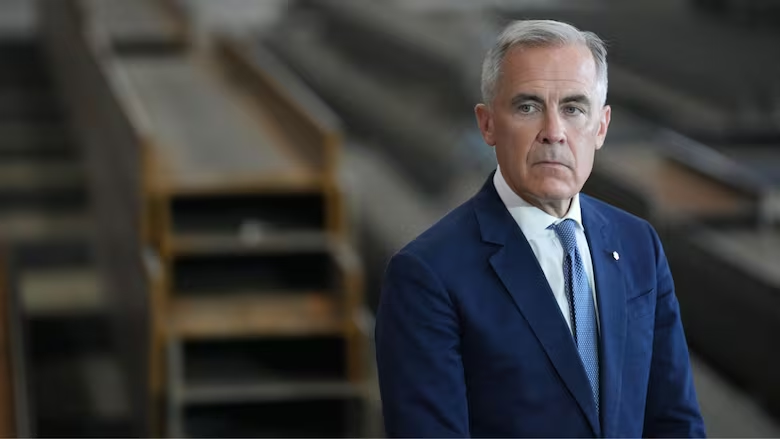Latest Ads
-
Jasmine Jewel
Call
-
Omidan group
Call
-
Amir Madanpour
Call
-
Dimo studio
Call
-
Yorkacademy
Call
-
Maryambagheri
Call
-
Shishlix Restaurant
Call

Carney promises First Nations leaders prosperity for 'generations to come' at summit on major projects
Prime Minister Mark Carney promised First Nations rights holders wealth and prosperity for “future generations” at a meeting on Thursday. The meeting was designed to ease leaders’ concerns about the government’s major projects bill, which has drawn criticism for its ability to quickly pass projects.
Carney said the bill, known as Bill C-5 before it passed parliament in June, is designed to “connect and transform our national economy” at a time when the country faces threats from U.S. President Donald Trump.
He said the potential benefits of building new railways, ports and energy “corridors” will accrue to First Nations because “Indigenous economic growth is at the heart” of the new framework.
He said the oversight structure will ensure that major projects are “built the right way” and with adequate consultation with affected Indigenous communities.
“Being a trusted partner for Indigenous people goes beyond upholding the duty of consultation — it’s about creating long-term wealth and prosperity for Indigenous people through full equity ownership,” Carney said, pointing to the Indigenous-owned Cedar LNG project in British Columbia as a model to replicate elsewhere.
“Canada’s new government is committed to working together so we can build Canada together for the benefit of all,” he said.
Still, Carney predicted there would be criticism of the new law — something he said Thursday he was not willing to change despite the opposition.
“We recognize that there are diverse perspectives, which is why we have invited a broad range of First Nations leaders to participate in this summit,” he said.
The two-day summit at the Canadian Museum of History in Gatineau, Quebec, began Wednesday afternoon and continues all day Thursday.
[Video: AFN National President Calls for ‘Strong Commitments’ from PM]
AFN President Calls for ‘Strong Commitments’ from PM, Warns First Nations Funding Already Tight
Cindy Woodhouse-Nepinack, National President of the Assembly of First Nations (AFN), said Thursday during a meeting with Premier Mark Carney about the government’s major projects bill that she is looking for real commitments from Carney on critical issues, including closing the infrastructure gap and ensuring that planned federal cuts do not impact First Nations people.
Bill C-5 passed quickly through Parliament and was amended to require provincial consent for national projects, but the Senate voted down a proposal by Mi’kmaw Senator Paul Prosper to include free, prior and informed consent in the bill.
“Our rights cannot be enforced or respected without us, either in substance or in process,” Cindy Woodhouse-Nepinack, president of the Assembly of First Nations, said at a news conference in Ottawa on Wednesday.
“They cannot be respected after the fact.”
First Nations enter with some optimism — but mostly pessimism — as Carney’s C-5 summit begins
Woodhouse said more than 600 First Nations from across the country have diverse views on the legislation and the summit should have taken place before the bill was passed.
She said she wants Carney to come to the table with meaningful reforms to Bill C-5 and solutions to the “$350 billion infrastructure gap for First Nations children in this country.”
At the AFN news conference, Joanna Bernard of the Madawaska Maliseet First Nation, AFN’s regional chief for New Brunswick, said the Carney summit is not really a consultation.
“They come in, they set the agenda, they decide how this is going to go, but it’s definitely not consultation. If it was, we wouldn’t be here, we would be implementing the agenda, and that’s not the case today,” Bernard said.
AFN chief wants PM to ‘listen more’ as Bill C-5 session begins
Carney has said that Indigenous consultation is central to the major projects bill, but Indigenous leaders have said it’s difficult to trust that promise without explicit amendments.
“Until there is a proper process based on free, prior and informed consent between First Nations rights holders and the Crown, the Crown’s legal obligations will not be met,” Woodhouse-Nepinack said.
“The leaders have been clear that First Nations consent for major projects is not optional.”
Chief says federal, provincial environmental laws ‘disrespect’ Ontario First Nations
On Monday, nine First Nations in Ontario launched a legal challenge to Bill C-5 and an Ontario law, Bill 5. The First Nations want the court to declare the two laws unconstitutional.
The Supreme Court has previously ruled that First Nations have the right to be consulted on projects based on their aboriginal rights and title — but they do not have the final veto power over whether a project goes ahead.
News source
Suggested Content
Latest Blog
Login first to rate.
Express your opinion
Login first to submit a comment.
No comments yet.


































